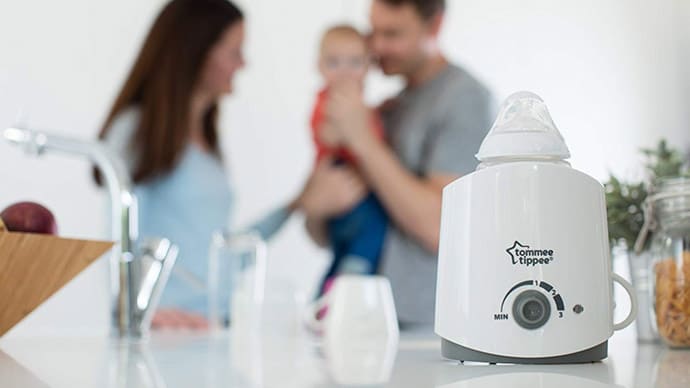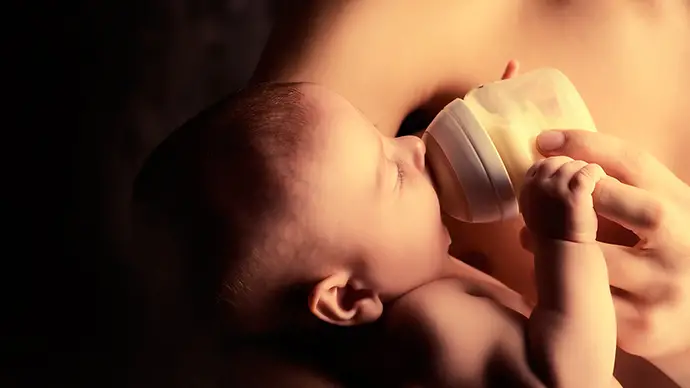Can I eat Watermelon While Breastfeeding?
The answer is yes, breastfeeding mothers can have watermelon. During lactation, the female body consumes beneficial components, vitamins, and minerals. With a high number of trace elements and vitamins in the watermelon, it is a perfect food for breastfeeding mothers. The only thing they should take into consideration is not to abuse it when introducing it in their diet and carefully monitor the condition of the child when doing so.
Does watermelon help with breast milk?
It’s not just an old wives tale- watermelon really does help with breast milk!
Watermelon is a fruit that has many benefits for breastfeeding mothers. It contains magnesium which is a substance that helps the body recover from childbirth.
Sweet watermelon also has vitamin C in it, which helps to strengthen your immune system and keep you healthy when you’re breastfeeding.
One of the best parts about watermelons is that they’re rich in iron too. Iron increases blood volume and can help to prevent anemia when you’re breastfeeding.
Watermelon seeds are a good source of magnesium. This mineral helps the body to relax after pregnancy and childbirth, which can reduce your stress levels and improve your mood. Magnesium also helps with milk production as well as uterine contractions, which leads to a decrease in postpartum bleeding.

Benefits of watermelon while breastfeeding
Watermelon contains folate which the body needs to create new cells in a healthy state. Folate is especially important during periods of rapid development of the body such as early childhood and will benefit your baby.
Eating watermelon while breastfeeding will help you stay healthy for both you and your baby.
Folate also gives your skin beauty so eating watermelon while breastfeeding will be an excellent idea for any pregnant woman or mother who wishes to remain young-looking throughout her life!
One of the most important ways that a lactating mother can ensure that her child is getting enough nutrients, as well as nutritionally beneficial substances, is to use food to help cleanse the body.
Watermelon contains a range of nutrients including vitamin C which can help with sleep quality too. This is important not only for the mom but also for the child alike.
If you are breastfeeding, watermelons can be very useful for you. They help you to recuperate and maintain your water balance after childbirth, improve your frequency of urination, and contribute to the production of better breast milk.
When can I eat watermelon while breastfeeding?
The maternal diet has to be strict in the first 60 days. From about 4 months after the appearance of breast milk, mothers may start to diversify their diet and include melons.
The mother should eat small portions of the new food, trying to stay within an easy-to-eat size. The amount can be increased after 5 days and monitored for the child’s condition.
Can watermelon cause allergy?
Watermelon is a good source of vitamins and minerals. But despite all its benefits, it can cause problems for nursing mothers. The composition of this berry is different from many others, as watermelon is one of the strongest food allergens out there. That means that you need to be very careful when eating watermelons.
If your body has an allergy to this fruit at any level (it doesn’t have to be severe), try not to eat it or consume it in any form whatsoever. If your baby shows a reaction after you consume a piece of watermelon, you should stop eating it entirely. It’s not worth the risk, especially when your child’s health is at stake.
After some time has passed, you can try eating watermelons again. Perhaps the reaction was due to a weak or undeveloped immune system in baby, or some other unforeseeable circumstance. You may very well be able to eat watermelon again without any problems in the future.
Can Watermelon become toxic for mother and baby?
It is not possible to eat as much watermelon as you want while breastfeeding your baby. Eating too much watermelon can cause both the mother and her baby to get poisoned.
Watermelons contain a good amount of nitrates which allow them to ripen faster, but they can also cause poisoning in both the mother and her child. The child’s body is more susceptible than an adult and even a fraction of the nitrates could be dangerous for them.
Under what condition should a lactating mother should not have watermelon?
First, you can’t eat watermelon in the first month of lactation. It’s very dangerous for a new-born baby. In addition, there are many diseases in which watermelon is not good, for example, women with diabetes should not eat watermelons.
Watermelons can aggravate the state of health in the presence of pancreatic diseases. Before introducing such a product into the diet, consult a doctor. This is true for lactating mothers too.
In conclusion, we can say that eating watermelon while breastfeeding is worth the risk when done in moderation. Pregnant women, and mothers who are breastfeeding, shouldn’t consume too much of this fruit as there could be an allergic reaction to it.
You should also consult a doctor if you think your baby is having any sort of allergic reaction from eating too much watermelon. It’s better to be cautious than sorry later on down the road.
Find out more breastfeeding tips to make it even more enjoyable.




